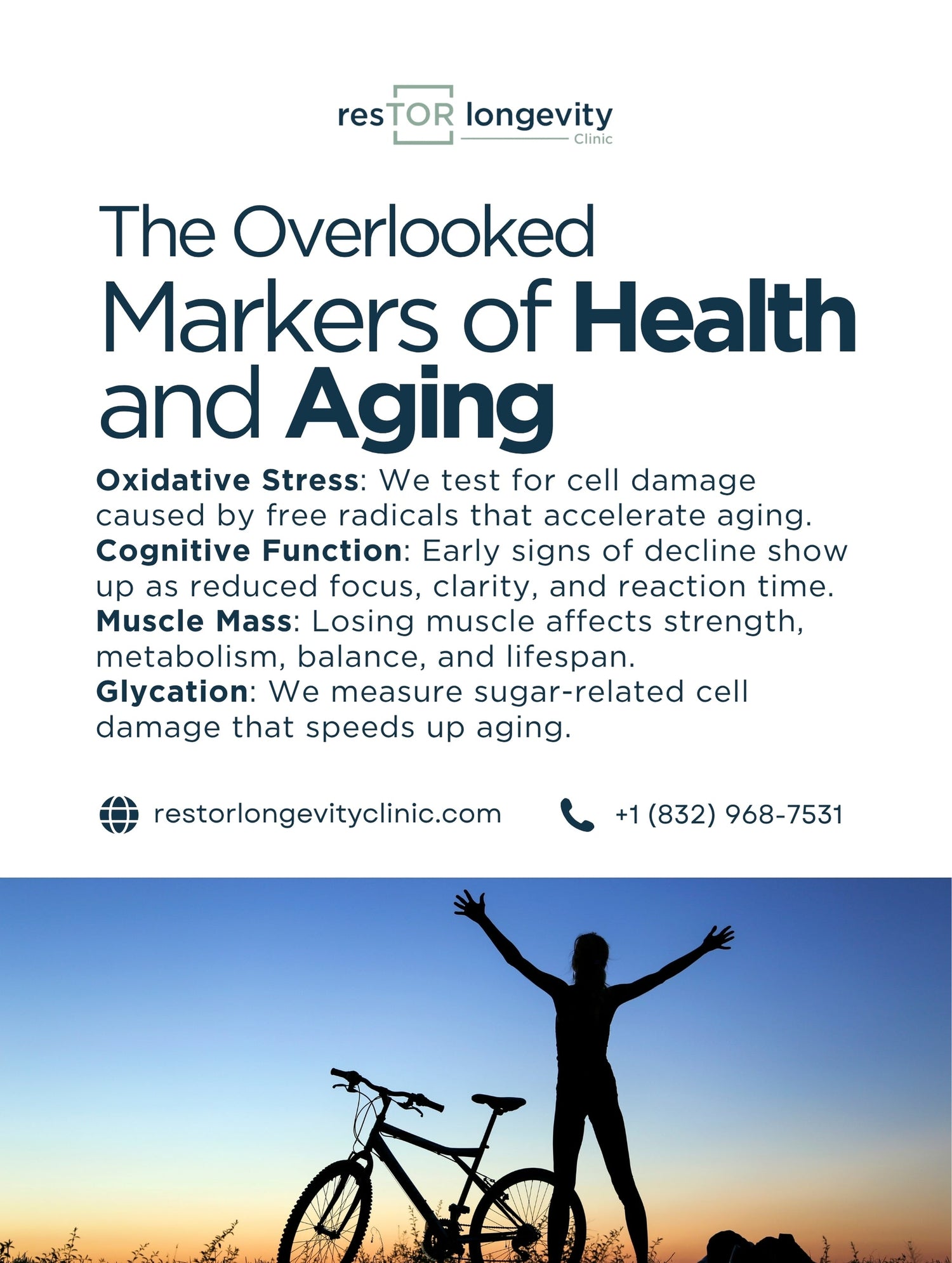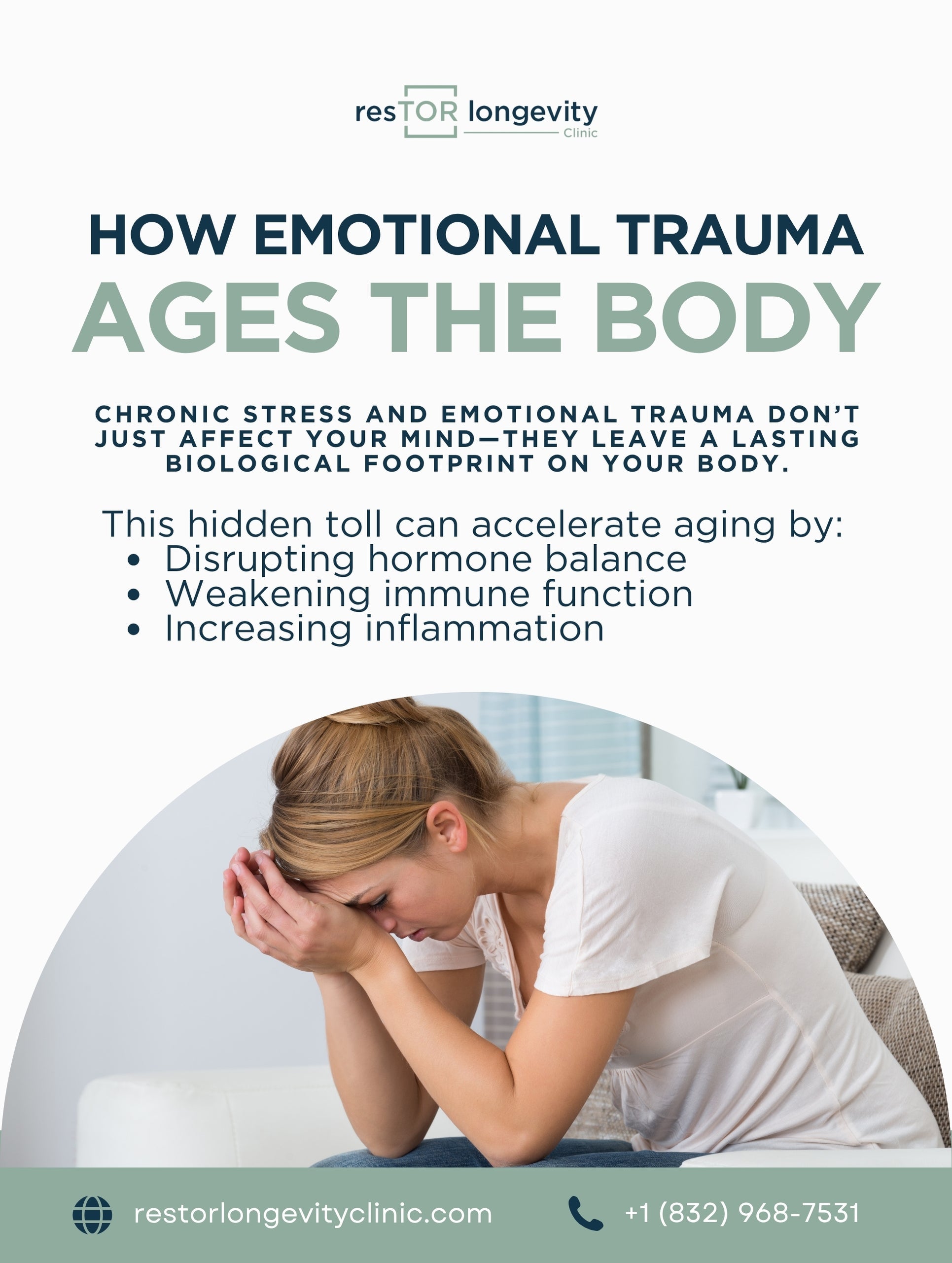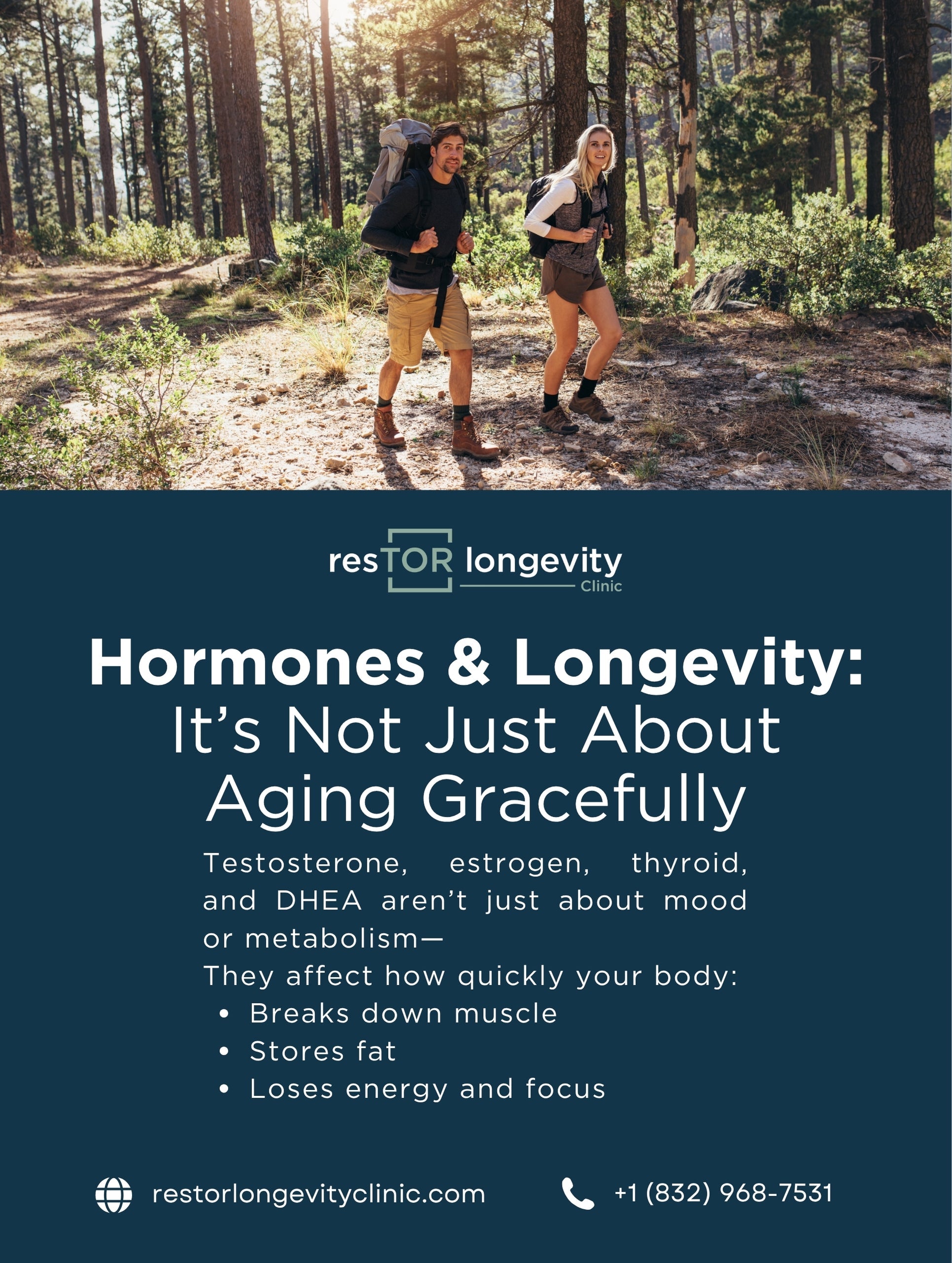The Hidden Signs of Aging: What Most Health Tests Miss
When you think of aging, you probably picture wrinkles, weight gain, or maybe a few gray hairs. But according to Dr. Greg Burzynski of resTOR Longevity Clinic, these visible signs are just the tip of the iceberg. The real indicators of how you're aging—and how healthy you truly are—lie beneath the surface, in often-overlooked biological markers that tell the deeper story of your body’s condition.
In today’s fast-paced world, many traditional health screenings miss these subtle but powerful clues. At resTOR Longevity Clinic, Dr. Burzynski and his team take a comprehensive, functional medicine approach to aging—identifying and addressing the cellular and metabolic changes that quietly influence your vitality, cognition, and lifespan.
Why Surface-Level Health Isn’t the Full Picture
A yearly physical might track your weight, blood pressure, and cholesterol, but what about the quality of your muscle tissue, how much sugar is sticking to your cells, or whether your brain is showing early signs of decline?
These deeper insights are essential. You might look and feel "normal," but internally, your body could be aging faster than it should. That’s why Dr. Burzynski emphasizes the importance of evaluating what he calls the “core aging markers.”
Here’s what you need to know about four of the most overlooked signs of aging—and why they matter more than ever.
1. Oxidative Stress: The Cellular Saboteur
Every breath you take produces free radicals—unstable molecules that can damage your cells. Normally, your body neutralizes them with antioxidants. But when this balance tips, oxidative stress occurs, silently contributing to inflammation, DNA damage, and age-related diseases.
Dr. Burzynski explains that “oxidative stress is a key driver of cellular aging. If left unchecked, it can impact everything from your skin to your brain.”
At resTOR Longevity Clinic, advanced testing is used to evaluate your oxidative stress levels, providing a detailed picture of how much cellular damage is happening in real time. With this data, targeted antioxidant therapies and lifestyle changes can be implemented to restore balance and protect your cells.
2. Cognitive Function: The Subtle Start of Decline
Memory loss isn’t the first sign of cognitive decline—it’s often much more subtle. Difficulty concentrating, slower reaction times, and mental fatigue can be early indicators that your brain isn’t functioning at peak capacity.
resTOR Longevity Clinic offers in-depth cognitive assessments that go far beyond a basic memory test. These evaluations look at processing speed, attention, executive function, and more—often detecting decline years before conventional screenings would.
With early intervention, Dr. Burzynski emphasizes that brain health can be preserved and even improved. “Neuroplasticity is real,” he says. “But you need to identify the problem early to take full advantage of it.”
3. Muscle Mass: The Foundation of Longevity
Age-related muscle loss, known as sarcopenia, begins in your 30s and accelerates with each passing decade. Most people don’t notice until they feel weaker or start falling more easily—but by then, significant damage has already occurred.
“Muscle isn’t just about strength,” says Dr. Burzynski. “It’s metabolic tissue that supports your immune system, your insulin sensitivity, and your balance.”
At resTOR Longevity Clinic, body composition testing helps quantify your muscle mass in relation to fat and bone density. Armed with this information, the team can recommend personalized strength-training regimens, nutritional strategies, and hormone therapies to preserve your muscle and protect your future mobility.
4. Glycation: Sugar’s Silent Attack on Your Cells
You’ve heard that too much sugar is bad for you—but did you know it can physically damage your cells?
Glycation occurs when sugar molecules bind to proteins and fats, creating harmful compounds called AGEs (Advanced Glycation End Products). These compounds accelerate aging by stiffening blood vessels, promoting inflammation, and impairing cellular function.
Using specialized blood tests, Dr. Burzynski can measure glycation markers to understand how much sugar is “sticking” to your cells. From there, he creates a customized plan to reduce your intake, optimize your metabolism, and minimize long-term damage.
Personalized Longevity Starts Here
Aging well isn’t about fighting time—it’s about understanding it. By identifying and addressing these hidden markers, you can take proactive steps toward better health, sharper cognition, and a longer, more vibrant life.
At resTOR Longevity Clinic, Dr. Greg Burzynski believes that true wellness starts at the cellular level. With his integrative, precision-based approach, patients receive personalized care that reflects their unique biology—not just the numbers on a standard lab report.
If you're ready to look beyond the surface and take control of your aging process, schedule your consultation with resTOR Longevity Clinic today.



